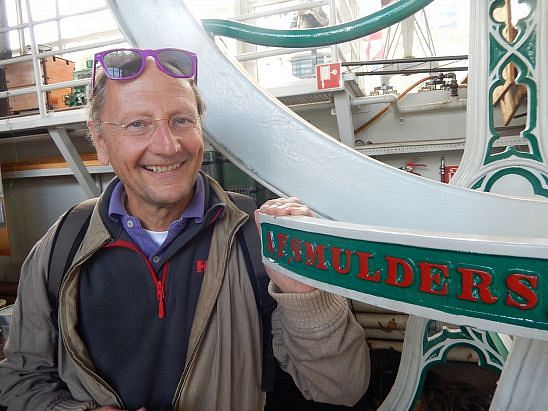In this third column on how to educate entgrepeneurs, I will dive into the idea of a universal academic brain and look at the elements that the brain could or should cover. This blog will look at wicked problems and experiential learning.
I am developing a framework for assessing student-entrepreneurs’ learning while they develop and establish their own ventures. Last week, we ended the (C)lean Tech Launchpad (CTL) – one of my pilot courses on entrepreneurship – with pitches by the nine technology ventures to a jury of investors.
The teaching team consisted of newly hired professors of practice at IDE and Prof. Marc Meyer and his team from Northeastern University, Boston. The course is assessed on three aspects: the ground covered since its start in February; the quality of the final pitch; and the business plan itself. This works for a course of six credits (EC).
In September, we will do the first run of the new course with fifteen credits: Build Your Start-up (open to all Delft MSc students, so please contact me if you have a business idea!). We can’t just grade the business plan at the end of the course as this would exclude the their ‘in-business’ learning. Instead, I need to look at the elements that I believe belong to the universal academic brain. I introduced the notion of the universal academic brain in my second blog.
Wicked problems
Most of the literature on academic work, academic learning goals, exit qualifications and so forth are either programme specific or very general. To illustrate the latter, one of Delft’s learning goals is to be “… able to synthesise knowledge and solve problems creatively when dealing with complex issues.”
I understand this to mean that Delft graduates need to be able to apply their knowledge creatively to solve complex problems. In the case of student-entrepreneurs, this might be somewhat different since they need to create the knowledge in advance themselves. furthermore, once a problem is solved, new problems – or creative challenges, as entrepreneurs like to call them – emerge.
The theory of problem solving introduced by design theorists Rittel & Webber (1973) refers to this as a ‘wicked’ problem as opposed to a ‘tame’ problem. A wicked problem is ” a problem that is difficult or impossible to solve because of incomplete, contradictory, and changing requirements that are often difficult to recognise. … Moreover, because of complex inter-dependencies, the effort to solve one aspect of a wicked problem may reveal or create other problems.” (source Wikipedia). Et voila, this closely resembles the never-ending entrepreneurial story of emerging and interrelated problems which cannot be dealt with until they are resolved one by one.
But because of the interrelated nature of the problems and their solutions, they need to be worked on in parallel. Hence, setting up a business is a true wicked situation. If student-entrepreneurs are to successfully establish companies, they need to be proficient in handling wicked problems. In my opinion, wicked problem solving can be learned. But what should the learning process entail?
Experiential learning
Student-entrepreneurs find themselves on a rollercoaster of dealing with wicked problems. Each step is a unique experience that results in a string of unique and interrelated experiences over a period of time. John Dewey, a twentieth century educational philosopher, advocated progressive and liberal education which sees education as part of life rather than as preparing for life.
In his view, real-life experiences are fundamental to human learning. His theory of experiences is based on two principles: 1) a ‘continuity’ of experiences that influences the future of the learner; 2) ‘interaction’ in which past experiences influence a new present situation. In other words, learners’ real-life experiences in any given situation influence their future in which they apply the insights gained to the present situation: experiential learning!
Our student-entrepreneurs are immersed in a process of largely self-directed experiential learning, hopping from one wicked problem to another and gaining tons of experience that provide opportunities to learn from. But the tricky thing is that for an experience to be of any value, they need to reflect and create that value themselves. In other words, they need to be able to extract valuable insights from past occurrences when working on wicked problems.
To conclude this third blog, we now understand that student-entrepreneurs are immersed in wicked problems that they will need to master by drawing on experiential learning. I will elaborate on this in the next blog.
Frido Smulders, Associate Professor Design, Innovation and Entrepreneurship, was granted a two-year educational fellowship by the TU Delft Executive Board in December 2016. Your response is welcome here.
Also read:
‘How to assess entrepreneurs at an academic level?’
‘Would an universal academic brain help me?’
Frido Smulders / Wetenschapper en Delta-blogger



Comments are closed.